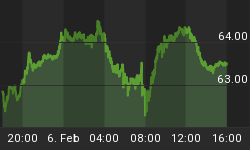While NATO members, led by France, piously proclaimed at the onset of their military offensive in Libya that their concerns were solely humanitarian, a covert tussle to gain a commanding lead in developing the country's energy riches in light of Colonel Gaddafi's departure is well underway.
The Libyan economy depends primarily upon revenues from the oil sector, which contribute about 95 percent of export earnings, 25 percent of GDP, and 80 percent of government revenue.
Prior to the outbreak of conflict, Libya was exporting about 1.3-1.4 million barrels per day from production estimated at roughly 1.79 million barrels per day, of which approximately 280,000 barrels per day were indigenously consumed. But analysts believe that with reconstruction Libya could soon be exporting 1.6 million barrels per day of high-quality, light crude.
But current production is the proverbial mere drop in the bucket. Libya has the largest proven oil reserves in Africa with 42 billion barrels of oil and over 1.3 trillion cubic meters of natural gas. Causing oil company executives from Houston to Beijing to drool on their Gucci loafers, only 25 percent of Libya's territory has been explored to date for hydrocarbons.
Libya is already Europe's single largest oil supplier, the second largest oil producer in Africa and the continent's fourth largest natural gas supplier and already dominates the Southern Mediterranean's petroleum sector. According to the Libyan National Oil Corporation (NOC), more than 50 international oil companies are already present in the Libyan market.
So, peering into Libya's future, who's actually ahead?
France, apparently.
On 3 April a letter was allegedly sent by Libya's National Transitional Council (NTC) to a coalition partner, Qatari Emir Sheikh Hamad bin Khalifa Al Thani, which mentioned that France would take "35 percent of crude oil...in exchange for its total and permanent support" of the NTC. France's Liberation daily reported on Thursday that it had a copy of the letter, which stated that the NTC's Information Minister Mahmoud Shammam, would negotiate the deal with France. In 2010 France was the second purchaser of Libyan oil after Italy, with over 15 percent of its "black gold" imported from Tripoli.
Zut alors!
The number one National Transition Council, Moustapha Abdeljalil recently reported that the States would be rewarded" according to support "given to the insurgents.
While NTC head Mustafa Abdel Jalil has not hidden the fact that the NTC would assign a higher priority for reconstruction and the allocation of oil contracts to countries that supported their uprising, remarking that nations would be rewarded "according to the support" given to the insurgents, the NTC's UK representative, Guma al-Gamaty, said that future oil contracts would be granted "on the basis of merit, not patronage. The contracts will be concluded in a transparent manner."
French Foreign Minister Alain Juppe solemnly denied during a radio interview any knowledge of a "formal" or specific deal but brightly added that it would be "logical" for countries like France, which helped the NTC in its struggle against Gaddafi, to take part in reconstruction.
French President Nicholas Sarkozy was the major European advocate for armed intervention in Libya and his administration was the first officially to recognize the NTC as "the sole, legitimate representative of the Libyan people" and the country's sole governmental authority, as well as lobbying other nations to recognize the NTC.
Seeking a share of "la gloire," France was also the first state to commence attacks on 19 March against Gaddafi's armed forces in Benghazi and along with fellow NATO member Britain, have since provided the majority of the military equipment and personnel used during NATO's operations in Libya. Going into grey areas of international law in its eagerness to oust Gaddafi France also supplied some weaponry to opposition forces in Libya, a move that came under harsh criticism because of the total arms embargo imposed by the UN Security Council on arms deliveries to any side in the conflict.
NTC's Paris-based envoy Mansour Sayf al-Nasr denied that such a letter had been sent or that any such pledge had been given. But no one was backpedalling more furiously than Information Minister Shammam, who intoned that such an arrangement was unthinkable.
"It's a joke. It's false," Shammam said.
Well, if you cannot believe an Information Minister, who can you trust? Sleazy journalists? It will certainly be interesting to see how the issue plays out in the days ahead, and if France does indeed get it 35 percent cut of the loot, which at present production rates, would average about 500,000 barrels per day.
By John C.K. Daly of Oil Price















